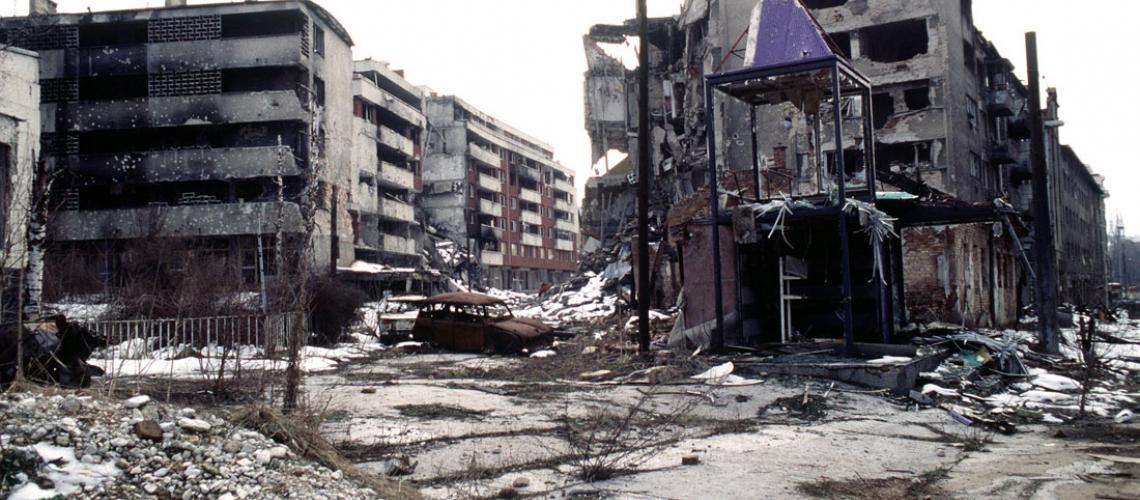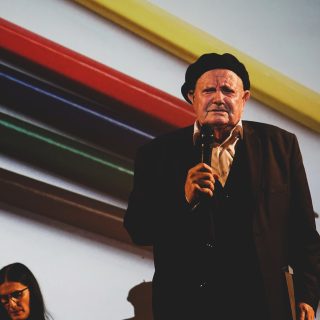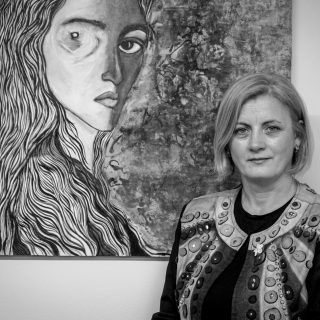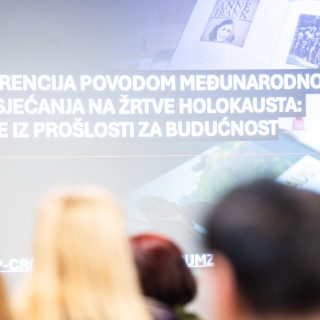Source: http://www.warscapes.com
Established by the United Nations in 1993, when war was still raging in Bosnia and Herzegovina, the International Criminal Tribunal for the former Yugoslavia (ICTY) has finally reached its last year of existence. In its twenty-four years of existence, the Tribunal has brought to justice 121 individuals from the former Yugoslavia. This includes prominent political figures from the former Yugoslavia, such as the late Serbian President Slobodan Milošević and, more recently, former President of the Repubika Srpska (the Serb entity within Bosnia and Herzegovina) Radovan Karadžić and Bosnian Serb military leader Ratko Mladić. One of its last acts as a functioning court will be to hand out the verdict in the Mladić case later this year. Mladić, among other things, is accused of killing over 7000 Bosnian Muslim men at Srebrenica.
The ICTY has greatly contributed to the development of international criminal law with its series of landmark decisions convicting, for the first time, an individual for genocide (Radislav Krstić) and, for the first time, configuring sexual violence as a serious breach of the Geneva Conventions (in the case of Mučić et al.). More importantly for the former Yugoslav countries, it has produced a monumental amount of evidence that will prove indispensable for historically making sense of the wartime period (1991-2001) in the region.
Yet its extra-judicial record is mixed. Of chief concern, the Tribunal has failed to deliver the social change implied in its lofty aim of bringing peace and reconciliation to the region. Among the numerous scholarly accounts investigating the ICTY’s sociopolitical impact, Jelena Subotić has shown how regional political elites have hijacked the ICTY’s decisions for their own political goals, de facto nullifying its intended impact. At the same time, Lara Nettelfield has argued that the Tribunal has crucially provided a factual basis for regional human rights activists to resist ethno-national elites narratives of denial.
The already complex evaluation of its legacy has been further compounded by a series of controversial judgments issued in 2012, which has spurred critiques in the academic community and shattered the faith of even of its staunchest supporters. The reductionist approach adopted in these cases to the doctrine of command responsibility, around which much of its jurisprudence had been constructed, and the resulting conclusions exonerating various key Croatian and Serbian officials (i.e. Perišić, Gotovina, Stanišić & Simatović), have lent more fodder to those denying the crimes committed under their supervision.
To disentangle the various elements that compose the ICTY’s multilayered legacy, and to see what it could and could not have done differently, I talked with Refik Hodžić, former spokesperson for the Tribunal itself, and currently director of communications at the International Center for Transitional Justice (ICTJ).
Caterina Bonora: This past year has been particularly intense at the ICTY. In March, the verdict in two important and lengthy cases, against Karadžić and Šešelj, was handed out, and December the last phase of the Mladić trial began. If you were to take stock of this past year at the ICTY, how do you think it impacted its public image?
Refik Hodžić: I am not sure that the public image of the Tribunal, however relevant that may be, is molded from the clay of its trials and its work. I think that the political dynamics in former Yugoslavia are far more decisive and impactful when it comes to the public image of the Tribunal than what is happening in the courtrooms. If you were to ask even well informed people in former Yugoslavia today about what the Tribunal has done over the past year, I think you would struggle to find many who would be able to tell you, except perhaps for the verdict against Karadžić. I think that the realities on the ground and the way that they have shifted in relation to issues relevant to the Tribunal’s work have, to a large degree, shaped whatever the public image of the Tribunal may be.
CB: But if we compare what happened this year to the controversial verdicts handed out in 2012-2013—the Perišić, Markač and Gotovina, and then Stanišić & Simatović verdicts—do you think that the Karadžić and Mladić trials have restored some form of faith in the Tribunal, at least in that segment of the society that was supporting it earlier on?
RH: I think we have to finally unpack this notion of how the Tribunal is viewed in the context of the dynamics on the ground, because I firmly believe the time that the Tribunal could have influenced the social and political dynamics in the former Yugoslavia—through reaffirmation of certain values, such as that we will not stand for impunity, for atrocity, that we definitely will not stand for denial of crimes has passed. Now we could discuss whether this window has closed with what you have referred to as controversial judgments, when the Tribunal’s decisions have undermined its credibility to the point where they have given fuel and ammunition to those who were always, or at least in the last ten years, intent on minimizing its impact in the former Yugoslavia. I am thinking about the president of Republika Srpska Milorad Dodik, who is using denial about facts and crimes and denial of genocide to pursue his agenda of the disintegration of Bosnia and Herzegovina and of furthering divisions, particularly between Serbs and Bosniaks [Bosnian Muslims]; or the reemerging right wing in Croatia, which is basically seeking to rehabilitate not only those who have committed crimes on the Croatian side in the recent war, but also the ideology of the Ustaša regime from the second world war.
Through its work, its decisions, the facts that it has established about some of the crimes as well as about the political responsibility for these crimes, the Tribunal had the power to impact social dynamics by providing the facts for public debate, which could have led to the reaffirmation of values of accountability, acknowledgement and reform, and of a rights-based discussion in the former Yugoslavia. Unfortunately, through the Tribunal’s disinterest for this kind of impact, together with the decisions that have robbed those who promoted the mentioned values in these public discussions of the key argument for using the Tribunal’s judgments—and that is their legal and factual legitimacy—that window seems to have closed. Now you can see that there is a certain indifference to what is coming out of the Tribunal even on the part of those who are traditionally its supporters, the human rights community etc., because it is very difficult now to use these arguments in the face of very reductionist nationalist argumentation. Basically, with the advent of the era of nationalist populism rising in the West and of the post-fact-based public debate, you can imagine how difficult it is for people to hold ground against someone who criticizes the ICTY after decisions in the cases of Gotovina or Perišić… or Šešelj!
Also thanks to these decisions, something that was crucially important has been reduced to the level of pub talk, that kind of unserious discussion where you are laughing at Šešelj’s antics. This is precisely what he wanted to achieve. He always wanted to reduce the importance of the Tribunal’s contribution to exactly that—to ridiculous, unimportant things, to something that is at the level of his tirades, ridden with expletives, and so on. Now it is almost there—of course not among serious people, academics or human rights activists—but how much real power to influence the social discourse in the former Yugoslavia do these people have today?
CB: So there are various factors here, there is a responsibility internal to the ICTY, to deliver good judgments, by which I mean decisions that are coherent with its own jurisprudence. But then there are of course the external factors of politics on the ground. Even before these controversial judgments, the Tribunal’s decisions were often not well received in the region. So what was it doing wrong there? Is it at all possible for a Tribunal to have a deeper impact on politics and society?
RH: I would disagree that when the Tribunal was systematically doing what it was supposed to do, and that is to bring to justice those most responsible for these crimes, that its work was not well received by the local public. We never had a serious, comprehensive, deep study of people’s attitudes other than superficial, annoying “surveys of public opinion” with childish questions such as “Do you support the ICTY?” or “Do you think the ICTY is biased?” If we want to be serious and honest on this issue we need to acknowledge that there had always been political forces on the ground that controlled the key opinion making mechanisms – the media, the education system, religious institutions, etc. – which shaped various perceptions of the Tribunal’s work amongst different groups.
Their messaging was so simple, it was never about particular judgments, it was never about the evidence that was presented in the cases, it was always reduced to messages such as that the Tribunal is anti-Serb, because it has a disproportionate number of Serbs indicted; it is anti-Croatian, because it is undermining Croatia’s just and legitimate war for independence; the Tribunal is too lenient, because it is not convicting everyone for genocide against Bosniaks; the Tribunal is in the Serbs’ hands, because it is indicting all these great Albanian fighters, and so on. This messaging was very easy to transmit and root in various nationalist myths, but at the same time I do believe that facts stood the test of this discourse and many people in intellectual and media circles, but also many “ordinary people,” were not privately questioning the facts and argumentations contained in the Tribunal’s judgments.
Unfortunately, the public discourse was decisively polluted since the vast majority of information about the Tribunal that reached the public was communicated through statements of politicians. I recall a study that I think was conducted by the Belgrade Center for Human Rights back in 2002, which indicates that a large majority of information about the ICTY reported in the Serbian media, I don’t remember precisely but it could have been more than 60%, were in fact statements from local politicians. Of course, then you will have skewed views and people buying into the anti-Tribunal messaging. But the facts established in ICTY’s judgments were there as well and were used by activists and by the media who wanted to actually reaffirm this rights-based discourse. You could see gradual progress.
The failing of the Tribunal, I have always repeated, was not to embrace, not to recognize its role as a transitional justice mechanism, as a mechanism that is in the service of the social recovery of the society, so that it can in real time recognize the destructiveness of this discourse that was coming from the political circles. For instance, it has never done anything to actually confront these allegations of bias. There were very simple responses to these stupid allegations about the Tribunal being anti-Serb, because it indicted more Serbs than others. It comes from a very simple fact: Serbs were at war with everybody, with three different sides, Croats, Bosnian Muslims, and Kosovo Albanians. So if you just do the math, that would be the biggest group represented in the indictments. Plus the fact that the Tribunal prioritized systematic, organized crimes. With these two factors, you could very simply address the question of anti-Serb bias so that they are understandable to the wider public, not to mention other ridiculous allegations against the Tribunal, which could have been easily dispelled. But the key decision-making circles at the ICTY after the departure of Gabrielle Kirk McDonald, were permeated by a kind of isolationist attitude, of we only do our work in our comfortable confines of our Hague courtrooms and residences and what happens outside is none of our concern and so on, and the attitude that if we have anyone to report to, it is New York, Washington, Brussels, Berlin, London, not Belgrade, Sarajevo, Zagreb, Tuzla, etc.
The effects of the combination of these attitudes, I think, can be laid at the Tribunal’s door as its responsibility. But we have to recognize that the perceptions of people in the former Yugoslavia were always decisively shaped by the political discourse in these countries. It is only at this later stage, with the inexplicable judgments I mentioned earlier, that finally the facts themselves, the judgments themselves, became problematic. That is where the advocates who were using the Tribunal’s work in this effort to achieve some sort of reckoning lost ground and the denialists finally had the upper hand. This is what continues to this day.
CB: Now this is combined with the situation deteriorating even in the former Yugoslavia, with the aggressive return of nationalist discourses and the narrowing down of plurality of opinion in Serbia, Croatia and throughout the region.
RH: Of course, we live today in a completely different age than, say, in 2006. The worst aspects of this new reality include a very systematic effort on the part of Republika Srpska government and leadership led by Milorad Dodik, which has now become a kind of a broader movement in the RS and Serbia, to not only deny the facts about the crimes, – because facts are based on evidence which is very difficult to deny—but to legitimize crimes, to say yes, these crimes were committed, but so what? These people [the perpetrators] were in fact our heroes, were the creators of our state, and if they committed some crimes, so what? Rehabilitating them into officially recognized fathers of the nation, you basically have a complete reversal of what it means to establish facts about crimes that were committed. It is not anymore a discussion about what happened, it is a discussion on whether it was legitimate or not. You could see that when the president of Serbia, which is seen as this EU darling, a factor of stability etc., a few days ago received Momčilo Krajišnik in an official visit—a convicted war criminal!
The message that that sends to both Bosniaks who were Krajišnik’s victims, but also to the Serbs, especially the young, is that, yes, he is a war criminal, and yes, he committed all these crimes, and yes I embrace him for that. That kind of messaging and behavior can only be read through the prism of preparation of some future conflict. Because what is the other side supposed to think? This is your official policy. You are saying that you are ready to repeat it at any point where the opportunity presents itself. You can see a parallel radicalization of the Bosniak political discourse and the continuous fortification of this victimhood narrative that leaves no space whatsoever for any discussion on a true reckoning with the facts, let alone reconciliation, forgiveness and moving forward. Actually there is nothing outside “we are the victims of genocide, you are the perpetrators of genocide” and it’s a zero-sum game. Last week in Sarajevo you had this performance about genocide against Bosniaks, which serves nothing but to homogenize Bosniaks against the Serbs around the notion that “they committed genocide against us, and that is the only thing that matters about them, this is never to be forgotten.”
CB: But do you still have some hope for the future? For instance, if Mladić ends up getting a life sentence this year, it could be of important symbolic value for the people in the region…
RH: When it comes to people such as Mladić and Karadžić, I just want them out of my life, out of my discourse. I don’t care what happens to them as long as they are locked away, and I never hear about them again. What is far more important is that the judgment actually gets to reflect on the gravity of the crimes and the dehumanization that laid the ground for atrocities. I believe we must always go back to the fact that we were incredibly lucky to find ourselves in this crack of the historical arch where there was a combination of unwillingness to act by the Security Council, to stop the crimes through military intervention, and the rise of the international justice movement, which has seen this court get established. Look at the situation today, can you imagine a similar thing happening for Syria, or Yemen, or any of the other places where such crimes are committed? I really find it difficult to imagine.
The Tribunal gathered such an invaluable, incredibly important mass of evidence, which can and should be used by us in trying to understand what has taken place and to pursue perpetrators, where possible, until the last one of them isn’t breathing. But we have to realize that its up to us. Whether we will be able to do that, whether we will be able to resist the trends in the political dynamics that seem to be stirring some new conflict, fueled by geopolitics and our short memory span, I am not so sure.
We can’t invest our endless expectations in the Tribunal the way we did before, simply because contrary to what we believed at certain times, this was not our court! It was a court of the international community with all the imperfections that this carries with it. We have seen much evidence of that unfold at the Tribunal. Still, that must not overshadow this humongous wealth of evidence that the Tribunal has amassed over the years that can serve in the reaffirmation of values of a rights-based society. But this has to be done without any desire for revenge, without any opportunistic thinking about profiting politically either from punishment or from denial. Once we get there, what the Tribunal has done will prove invaluable. It is just a question if we will get there.
Refik Hodžić is the director of communication at the International Center for Transitional Justice, an international NGO based in New York City, since March 2011. He previously worked as a consultant for the Special Tribunal for Lebanon (STL) on its outreach strategy. Between 2000-2004 and 2006-2010, he worked at the International Criminal Tribunal for the former Yugoslavia (ICTY) as spokesperson and outreach coordinator for Bosnia and Herzegovina. He is also the co-founder of XY Films, which produces documentaries on the legacy of the crimes committed during the wars of the 1990s in the former Yugoslavia. Twitter @ledenik1
Caterina Bonora is Associate Editor at Warscapes. Twitter @cate_bonora




